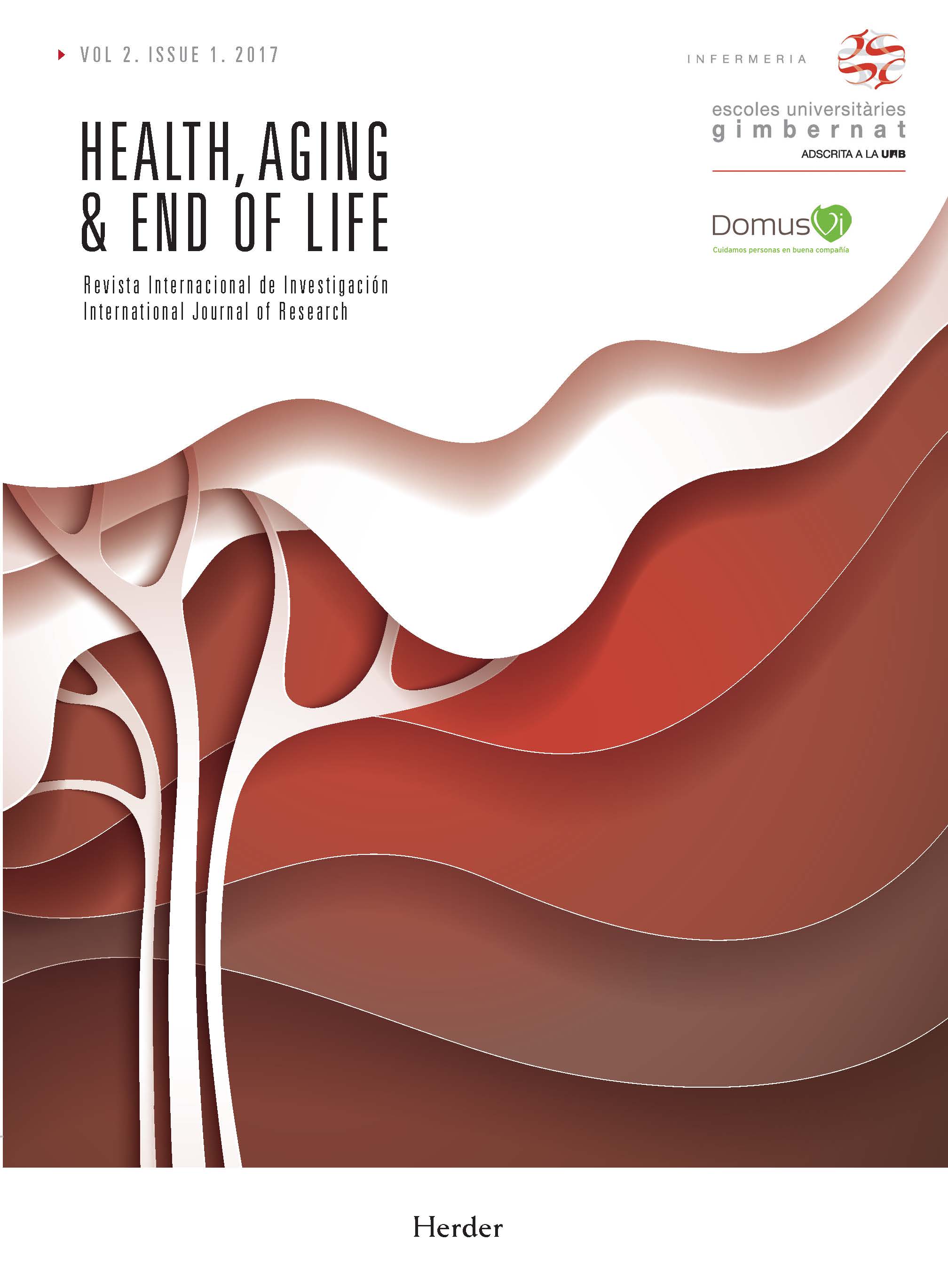Abstract
The end of life brings the person to the experience of new scenarios where all the mental and psychological structure built during life can totter, and even col-lapse; in addition, the end of life can be, if not the most painful, one of the most difficult experiences to witness and accompany. It is in these scenarios where a humanist care is most needed, which, in no case, should be against the continuous scientific progress. Health care should not only include the attention of biological needs and avoidable suffering, but also the essential needs, more linked to the spir¬itual dimension of the person, especially relevant in the final existential process.
The main difficulty in approaching suffering and trying to help the person to reach a quiet and peaceful death is the fact that it is an always-subjective experience, inherent to the person and, ad portas of the death, usually closely linked to the self-evaluation or perception of the meaning of his/her life, everything known, everything desired, and a present that is threatening his/her integrity.
References
Barbero, J. (2002). El apoyo espiritual en cuidados paliativos. Labor Hospitalaria, 263, 5-24.
Barbero, J. (2004). Sufrimiento y responsabilidad moral. En R. Bayés (Dir.). Dolor y sufrimiento en la práctica clínica (pp. 151-170). Barcelona: Fundación Medicina y Humanidades Médicas.
Bayés, R., Arranz, P., Barbero, J. y Barreto, P. (1996). Propuesta de un modelo integral para una intervención terapéutica paliativa. Medicina Paliativa, 3, 114-121.
Bayés, R. (2000). Algunas aportaciones de la psicología del tiempo a los cuidados paliativos. Medicina Paliativa, 7(3), 101-105.
Bayés, R. (2000). Los tiempos de espera en medicina. Medicina Clínica 114(12): 464-467.
Bayés, R., Limonero, J.T., Romero, E. y Arranz, P. (2000). ¿Qué puede ayudarnos a morir en paz? Medicina Clínica, 115(15), 579–582.
Bayés, R. (2009). Sobre la felicidad y el sufrimiento. Quaderns de Psicologia, 11(1/2), 11-16.
Cassell, E.J. (1982). The nature of suffering and the goals of medicine. The New England Journal of Medicine, 306, 639-645.
De Hennezel, M. (1997). La muerte íntima. Barcelona: Plaza & Janes.
Emanuel, E.J. y Emanuel, L.L. (1992). Four models of the physician-patient relationship. JAMA, 267(16), 2221-2226.
Emanuel, L.L. y Scandrett, K.G. (2010). Decisions at the end of life: have we come of age? BMC Medicine, 8(1), 57.
Emanuel, L.L., Reddy, N., Hauser, J. y Sonnenfeld, S.B. (2017). «And Yet It Was a Blessing»: The Case for Existential Maturity. Journal of Palliative Medicine (en prensa).
Frankl, V.E. (1999). El hombre en busca de sentido. Barcelona: Herder.
Gracia, D. (2004). Por una asistencia médica más humana. En D. Gracia (Ed.). Como arqueros al blanco. Estudios de bioética (pp 93-102). Madrid: Triacastela.
Jaspers, K. (1967). Psicología de las Concepciones del Mundo. Madrid: Gredos.
Kabat-Zinn, J. (2007). La práctica de la atención plena. Barcelona: Kairos.
Krikorian, A., Limonero, J.T. y Maté, J. (2011). Suffering and distress at the end-of-life. Psycho-Oncology, 21(8), 799–808.
Krikorian, A. (2012). Factores que contribuyen a la experiencia de sufrimiento en enfermos con cáncer en situación avanzada/terminal que reciben cuidados paliativos. (tesis doctoral). Universitat Autònoma de Barcelona. Recuperado de: http://www.tdx.cat/handle/10803/96861.
Laín Entralgo, P. (1964). La relación médico-enfermo. Historia y teoría. Madrid: Revista de Occidente.
Langer, E.J. (1989). Mindfulness. Reading, MA: Addison-Wesley Publishing Company.
Longaker, C. (1998). Afrontar la muerte y encontrar esperanza. Guía para la atención psicológica y espiritual de los moribundos. México: Grijalbo Mondadori.
Maté, J. (27 septiembre de 2007). «La espiritualidad no puede ser enseñada... tan solo puede ser descubierta». En V. Aresté (moderadora). Dimensió espiritual i malaltia. Mesa redonda organizada por la Asociación Española Contra el Cáncer (AECC) y realizada en Caixa Forum, Barcelona.
Maté, J., Bayés, R., González-Barboteo, J., Muñoz, S., Moreno, F. y Gómez-Batiste, X. (2008). ¿A qué se atribuye que los enfermos oncológicos de una unidad de cuidados paliativos mueran en paz? Psicooncología, 5(2–3), 303–321.
Maté-Méndez, J., González-Barboteo, J., Calsina-Berna, A., Mateo-Ortega, D., Codorniu-Zamora, N., Limonero-García, J.T. y Gómez-Batiste, X. (2013). The Institut Català d’Oncologia Model of Palliative Care: an integrated and comprehensive framework to address the essential needs of patients with advanced cancer. Journal of Palliative Care, 29(4).
Maté Méndez, J. (2014). Sufrimiento en el paciente oncológico al final de la vida. (tesis doctoral). Universitat Autònoma de Barcelona. Recuperado de: http://www.tdx.cat/handle/10803/283732, 237-243.
Neff, K.D. (2003). The development and validation of a scale to measure self-compassion. Self and identity, 2, 223-250.
Nouwen, H. (1971). El Sanador Herido. Madrid: PPC.
Rogers, C. (1989). El proceso de convertirse en persona. Barcelona: Editorial Paidós.
Rogers, C. (1980). Persona a persona. Buenos Aires: Editorial Amorrortu.
Schweizer, H. (2010). La espera, melodías de la duración. Madrid: Sequitur.
Sogyal Rimpoche. (2006). El libro tibetano de la vida y la muerte. Barcelona: Urano.
Tolle, E. (1997). El poder del ahora. Madrid: Ediciones Gaia.
Yalom, I.D. (1984). Psicoterapia existencial. Barcelona: Herder.

